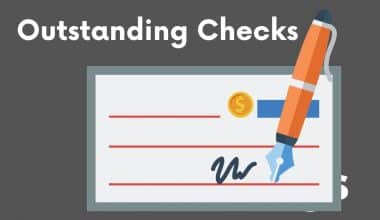Garnishment is the legal process of taking money from someone’s paycheck to pay back a debt. If the debtor has ignored previous requests for payment, this is the last chance to get paid before going to court. Wage garnishment is a process that can be stressful and difficult for any company. This article talks about what are the garnishment tax levy, wages, and examples in payroll.
How Garnishment Works
When money is taken from an employee’s paycheck and given to a creditor, collection agency, or other third parties, this is called wage garnishment. A wage or bank account garnishment is a legal process that lets a third party get money owed by a debtor from the debtor’s paycheck or bank account.
Most of the time, a creditor needs a court order to take money from a debtor’s paycheck after the debtor has not paid on a judgment. An IRS tax lien doesn’t need a court order. Usually, the debtor’s employer is the one whose wages are garnished. Federal law says that an employee can’t be fired for not making a garnishment payment.
Garnishments can happen because of debts like unpaid taxes, fines, child support, and student loans that haven’t been paid. For example, if Smith owes taxes, the IRS may tell his employer to take a certain amount out of his pay for a certain amount of time. Garnishments can hurt a person’s credit score because they are a harsh way to get money back for debts and show a bad history of paying back debts.
What Is Garnishment of Wages
The legal process of taking an employee’s wages to pay off a judgment or other legal obligation is called “garnishment.” People often use wage garnishments to get back child support, taxes, credit card debt, medical bills, and fines and penalties from the court. Most garnishments are not a fixed amount, but rather a percentage of the employee’s pay.
Businesses with employees who are being garnished will get a “writ of garnishment” from a court or government agency. Then, employers must always figure out how much the garnishment is, take that amount out of employees’ paychecks, and send the money to the right creditor or agency. If an employer doesn’t follow a garnishment order, the consequences can be very bad.
The Consumer Credit Protection Act says how much of a person’s wages can be taken from them. To figure out garnishment wages, take the amount that is the least of the following:
- If a person has more than $290 in extra money each week, 25% of that amount is needed. $217.50, which is 30 times the weekly minimum wage of $7.25.
- There is no wage garnishment for people whose take-home pay each week is less than $217.50. A person’s wages can be taken from them if they have more than $217.50 in extra money each week. If your monthly take-home pay is more than $290, you could lose up to 25% of it.
- The term “disposable income” refers to the amount of money left over after taxes, social security payments, and other mandatory payments have been taken out.
Reasons for Wage Garnishment
Garnishment is a legal way to get rid of debts like credit card bills, medical bills, and child support. The following examples are the reasons for garnishment wages below:
#1. Paying for Kids
If a judge decides to take money from a parent’s paycheck to pay back child support, the amount could be big. If the parent is supporting another spouse or child and has been late for more than 12 weeks, the exact amount will vary. Up to 65% of a parent’s discretionary income may be their legal responsibility.
#2. Owed Taxes
If you don’t pay your tax debt for a long time, the Internal Revenue Service (IRS) may take steps to garnish your wages without first getting a court order. How much you owe in taxes will depend on whether or not you have people who depend on you. Before beginning a garnishment, the IRS will send out warnings, such as a Final Notice of Intent to Levy.
#3. Subsequent Debt From Student Loans
If you owe money on Federal student loans and are behind on payments, your lender can ask your employer to take money out of your paycheck to cover the balance. When it comes to federal student loans, 15 percent of your paycheck is the most that can be taken out as a garnishment. Similar to the last example, a court order is not strictly necessary for garnishment in this case.
#4. Consumer Debt
The most common ways to get unsecured credit are through credit cards and personal loans from banks. If you don’t pay your debt, it may be sent to collections, and if you still don’t pay after that, your creditor may ask a court to take money out of your paycheck. How much wage garnishment can happen because of consumer debt could depend on the laws in your state.
Garnishment Examples
There are two types of garnishments in the United States: wage and non-wage. It cuts a debtor’s take-home pay and makes it harder for them to pay their bills. Not only that, but their credit rating is going down very quickly. This is how different kinds of loans are added up. Credit card debt, student loans, back taxes, child support, and other financial obligations can quickly add up.
Employers who are subject to a wage garnishment have to take out and send back a certain percentage of their employees’ regular paychecks until the order is paid in full or the garnishment is lifted. Here are some examples of garnishment.
- Laws that require wages to be withheld (EWO).
- The court gave the order to take money from the person’s pay to pay for car registration (FTB 2204).
- Order to keep wages to pay off a court debt (FTB 2229).
- Individual Tax Withholding Form for Income Earned (FTB 2905).
What Is a Garnishment Tax Levy
An IRS garnishment levy is a legal way for the government to take up property to pay off a tax debt. It has the power to take your car(s), home(s), and other possessions and sell them. It can also take your salary and any other money you have.
Wage garnishment is a common way to get people to pay back taxes they owe. When the IRS garnishes your wages, your employer is required by law to take out a certain amount and send it to the IRS to cover your tax bill. When the IRS puts a levy on your business, it has one full pay period to pay up.
Most garnishment wages stay in place until the debt is paid off in full or until another plan is made. The Consumer Credit Protection Act will keep your first paycheck from being taken away. It is against the law for a company to fire an employee for a first-time pay garnishment.
If an IRS garnishment tax levy is put on a worker, a supplier, a customer, or someone else who is not directly connected to your business, you must help the IRS. With wage garnishment, a certain amount of money is taken from your paycheck every time you get paid until the debt is paid in full. In both cases, the IRS needs to talk to people (or another creditor).
What Is a Garnishment in Payroll
When an employee owes money to someone else, the court can issue an order called a “payroll garnishment.” This tells the employee’s employer to take a certain amount out of the employee’s paycheck and send it to the person who is owed money. There are limits to how much can be taken out of a worker’s paycheck, and the rules for doing so depend on the type of debt.
“Payroll garnishments” are legal procedures that allow a debtor’s creditors to take a portion of an employee’s wages at work. In order to do these things, you need a judge’s order, which must come from a trustworthy person. When garnishment wages are allowed, some examples include:
- Overdue federal or state tax payments.
- The wrong amount of Social Security or unemployment benefits was paid.
- Alimony.
- Student loans for college.
- Support payments for children.
- Credit card debt.
- Costs for hospital stays and medical care.
- Individuals selling off of the property.
Any American worker can have money taken out of their pay if certain federal and state laws are met.
How Will I Know if I Need Payroll Garnishment?
Creditors can tell businesses in different ways that they need to start taking money out of employees’ paychecks. Almost always, though, a court order is needed (if the creditor is the IRS, they do not need one).
If you get a notice to garnish an employee’s wages, you should know that most orders have a deadline and that you can’t ignore them. If you have doubts about whether or not a garnishment order is legal, don’t be afraid to ask the creditor. Even if an employee says the loan has been paid off, you should still go through the garnishment process.
How Should I Move Forward?
After getting and confirming a payroll garnishment order, you need to do a number of things. Certainly, there are;
- You should probably tell the worker before doing anything else. In some states, you may have to tell them in writing. There may not be a need for written proof in all parts of the country.
- In any case, you should either fill out the form the creditor gives you or write a letter and include a copy of the court order. This will give the worker plenty of time to get in touch with the creditor if they have any questions or concerns and make sure they know everything.
- Start the garnishment process by taking the next step. If there isn’t already a process for garnishing paychecks, one should be set up right away. It’s up to you if you want to outsource payroll processing or do everything in-house, but a clear system will help you either way.
- But this is where wage garnishment can get tricky for many businesses. The rules for figuring out the amount of a garnishment change from case to case (once you know the specifics, a garnishment calculator can help).
- Employers may feel threatened by the idea of having to show the right paperwork for multiple garnishment orders that may be given to the same employee. If you want to make sure you’re following all the rules, it’s best to talk to a local lawyer who knows the laws and rules in your state.
- Keep up with what’s going on. Make it a priority to know about any changes to federal or local laws, as well as any changes to the rules for garnishing the wages of individual employees.
Learn How to Deal With Payroll Garnishments
We can’t give you a detailed procedure for your company because there are so many ways that garnishment could go. In general, you should know that your responsibilities will include:
- The employee must be told about the order to garnish wages by the employer.
- Payroll taxes are calculated and deducted in the right way.
- The debtor gets a direct payment of the amount that has been garnished.
- You will keep getting garnishments until you get a release.
What Is an Example of a Garnishment?
Wage garnishment is a legal process in which an employee’s employer takes money from their paycheck to pay off a debt, usually child support.
What Does Garnish Mean When It Comes to Money?
A wage garnishment is a legal process by which an employee’s employer takes money from their paycheck to pay for something, like child support.
What Is the Meaning of Garnishes?
Garnish means adding something to something else, like an orange slice to a salad.
What Are the Different Types of Garnishments?
If an employee has a wage garnishment order against them, their employer is required by law to take a certain percentage of their pay and send it to the court until the debt is paid in full or the order is lifted. The following are;
- Home.
- Pay.
- Collections.
- Withholding orders.
- Wage garnishments.
How Can I Stop a Garnishment on My Bank Account?
The following are;
- The debt must be paid.
- Talk to your lender and work out a way to pay back the money.
- You need to fight against the garnishment.
- Put in a claim to get an exemption.
- Chapter 7 or Chapter 11 bankruptcy should be filed.
What Is the Most Common Type of Garnishment?
Most wage garnishments have to be done because the law says so. Garnishment can also be done through other legal or fair means, such as levies from the Internal Revenue Service or a state tax collection agency for unpaid taxes or administrative garnishments from a federal agency for debts owed to the federal government that is not taxing.
Conclusion
A court order is called a “garnishment,” which lets a third party take the property, usually wages from a job or money from a bank account, to pay off a debt. You’re in luck because there are a lot of places where you can learn everything you need to know about payroll garnishments. But if you’re still worried, know that a third-party payroll system can help with garnishments, streamline your payroll processes in general, and even protect you from payroll fraud.
Related Articles
- GARNISHMENT OF WAGES: Meaning, How to Stop It & Lawyer
- WAGE GARNISHMENT: How Does It Work
- GARNISH WAGES: Meaning and How It Works
- IRS Attorney: Salary, Jobs, Fees, Best Options & All You Need
- MARKETING CAREERS: Top 15+ Common Careers In Marketing
- Minimum Wage in Texas: What is the Minimum Wage in Texas 2023
- CALIFORNIA MINIMUM WAGE: What is the current California minimum wage?
- LIVING WAGE: Meaning & Benefit
- ACCRUAL BASIS: What Is It, Examples, Net Income & Difference.






